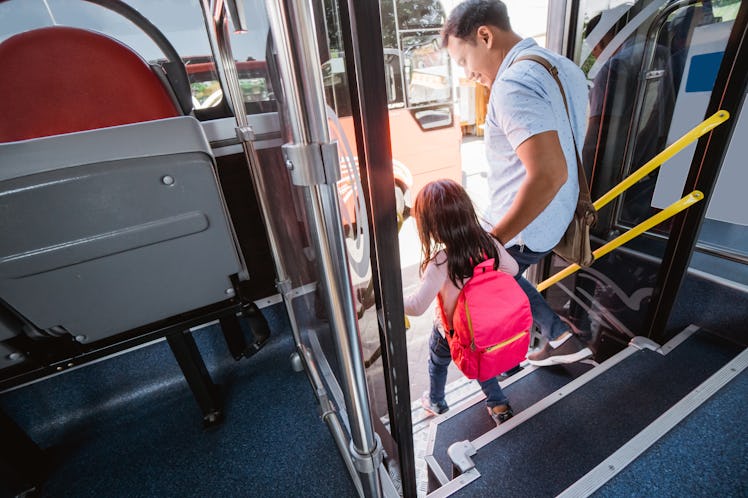New Policy Will Give People $100 A Month & Could Help People Drive Less
A D.C. Council committee has come up with a solution to help families with their monthly travel expenses, and it’s really smart.

The cost of living continues to rise for families across the U.S. Affording to put food on the table requires creative shopping, rent prices are skyrocketing, and paying to get to and from work — whether via public transit or by car — can take a large chunk out of the monthly budget for families. Now a D.C. Council committee has come up with a solution to help families with their monthly travel expenses, and it’s really smart. Here’s what’s going on.
On Monday, September 26, a D.C. Council committee met to advance a bill that would make public transit far more affordable and accessible in many cases. The bill would give most residents $100 a month to be used toward Metrobus and Metrorail transit, taking this expense off the plates of already stretched families and encouraging folks who often drive to take transit instead.
“The council’s five-person transportation committee unanimously voted to approve the bill,” DCist reports, “sending it to the full legislature for debate and a first vote as early as October.”
The bill was first introduced in 2020 by Councilmember Charles Allen. Should it pass this October, qualifying residents will receive an initial $100 subsidy followed by monthly installments of the subsidy.
Any expenses that hit above the $100 subsidy would not be covered under the bill. This new subsidy is in addition to the already existing Kids Ride Free program, which provides service to more than 50,000 D.C. school children each year.
“As we are faced with the economic recovery, it’s absolutely imperative [to get people back on Metro]. Metro’s success is so closely linked to the District’s success and frankly, the region’s success,” Allen said. “It’s how our residents get to and from work. It’s how neighbors move around their community. It’s how students get to and from school. It’s what small businesses rely on to get customers to and from their storefronts, as well as their employees.”
The legislation would exclude federal employees from qualifying since they already receive a transit subsidy but would cover the transit needs of 92% of adult users in the city. In addition, the subsidy would help 78% of residents who don’t currently receive subsidies from their employers, according to a study on the legislation by the council’s budget office.
Additionally, the study noted, “making the subsidy immediately accessible to all income levels would still disproportionately benefit lower income residents, who are less likely to have access to workplace subsidies and spend a higher portion of their incomes on transportation.”
Across the country, other travel expense subsidies have been offered at the state level but have focused on helping reduce gas costs for those who drive personal vehicles. However, the D.C Metro subsidy is noteworthy because it’s a three-fold solution step to several key issues. This includes giving D.C’.s economy a much needed boost, helping reduce the financial strain on families, and incentivizes uptake of a far more “green” commute.
This article was originally published on